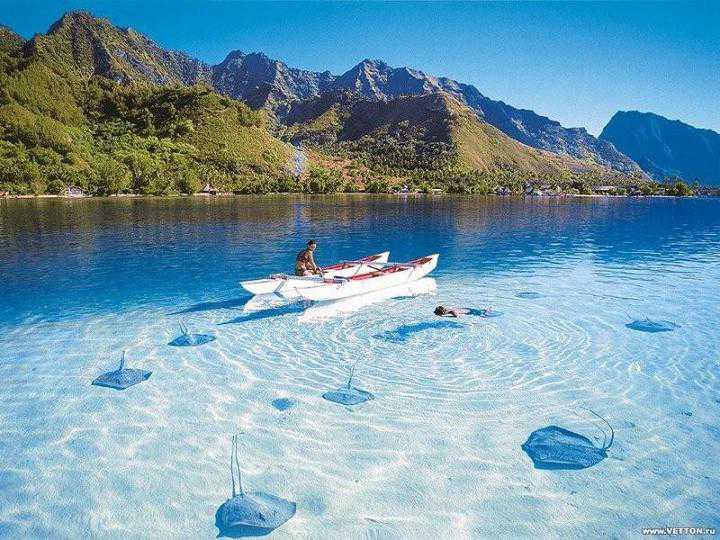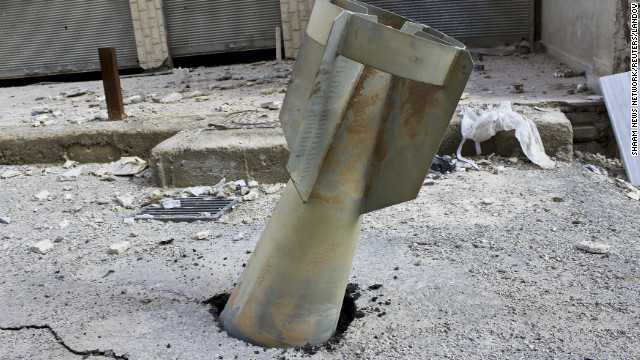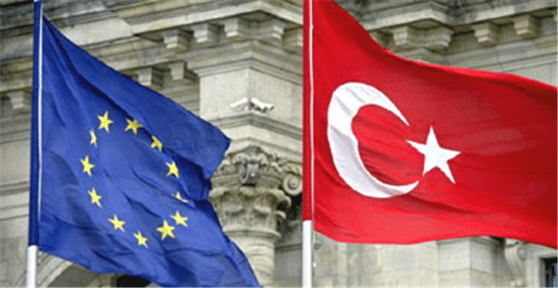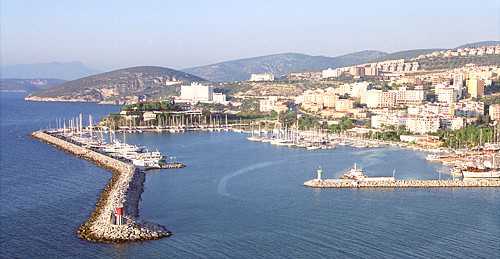UNCOVER MYSTERY HUNT
Against Sultan Abdulhamid II and Descendants:
Present and Past Plots and Slanderous Propaganda
http://nadinevalidesultan.org/uncovermysteryhunt.html
For some time now, my family and myself have been the victims of malicious propaganda in which our names are stolen for the purpose of presenting us FALSELY at functions to which we are not present. One of the motives seem to be prompted by the embezzlement of inheritance by these dubious people.
Recently, a person named “Princess Nilufer” (former Mrs Katherine Luigi de Andrea) wrote a book in which she USURPED the name of my daughter, Karina, in order to present a person of bad character to an impressive Gala in Montreux, Switzerland. Not only, my daughter is the exact opposite, both physically and morally, from the person that was presented as my daughter (see one of her photos in Family Album on this site), but my daughter has NEVER been in Montreux, Switzerland, and she does not reside in Europe.
Book published in French by Princesse Nillufer, entitled: “POUR L’AMOUR DE TATIANA: La sultane des enfants malades”. Published in September 2006 by “PRESSES DE LA RENAISSANCE, BUSSIERE GROUP CPI.
Below are the pages written by Nilufer.
Verbatim quote from her book pages 182-183-184:
QUOTE:— “…Nous allions donc, ma mère et moi, parmi les invités du gala, saluant ici et là, lorsque Méthaf Daouad, un ami et le manager général S.P.A. de la clinique La Prairie (fort connue à Montreux), voulut nous présenter une Sultane ottomane! J’en fus très étonnée car les seules Sultanes, en Suisse, à ma connaissance, étaient S.A.I. la princesse Nejla Ibrahim, qui d’ailleurs avait déménagé de Pully pour aller s’installer à Madrid, et moi-même! Était-ce S.A.I. la princesse Nejla dont parlait Méthaf Daouad?
Pas du tout. Car, au lieu de voir ma tante Nejla, longue et svelte, s’avancer vers nous, nous vîmes, maman et moi, une personne blonde, assez corpulante, pas très grande et habillée d’une façon très clinquante, que Méthaf nous presenta en ses termes: “ Voici la princesse Karina!”
Immédiatement, ma mère et moi-même lui fîmes subir un véritable interrogatoire, malgré le cocktail qui battait son plein, et tout le bruit environnant.
Très embarrassée, la soi-disant “princesse” essayait d’esquiver nos questions. Elle ne se rappelait plus ni le nom de son père ni celui de son grand-père et finalement proposa d’aller chercher sa mère qui, elle, pourrait répondre à toutes nos questions.
“C’est très bien, allez trouver votre mère et dites -lui que la princesse Nilufer Sultane voudrait la rencontrer.”
Complètement décontenancée, elle tourna les talons. On ne la revit plus de la soirée! Des amis, les Badoux, qui nous rejoignaient, nous demandèrent en riant: “Qui est-ce?“ — “Encore un de ces imposteurs!” répondîmes-nous, ne croyant pas si bien dire!
Nous avions raison, il s’agissait, en effet, de la fille de la fameuse madame Nadine Dawson qui se faisait passer pour une Sultane de la Famille Impériale ottomane depuis des années.
L’histoire de l’imposture de Nadine Dawson était déjà ancienne. Il y a presque quinze ans de cela, apès un article paru dans Point de Vue Images du Monde, où un certain Serge Arabian se faisait passer pour le prince Selim….”
Page 184:
“…Ce ne fut d’ailleurs pas le seul cas. Une journaliste, qui travaillait pour le magazine l’Illustré, Shadya Ghemati, voulait aussi se faire passer pour une “authentique princesse ottomane” Cette fois-là, le doyen d’âge de notre Famille le Beyzadé Ömer Nami, qui était juriste, s’était chargé d’écrire, à notre demande, au magazine L’Illusté, un démenti pour que l’on cesse d’imprimer de telles bêtises!….”— UNQUOTE
Too many erroneous statements and slanders in this book to report all of it here.
Following is the translation in English of the above writing published in French by “Nilufer”
Translation of pages 182, 183, 184 of libelous writings by the author against (Mrs) Nadine Dawson and her family. Starting from: “ Nous allions donc, ma mère et moi…”
——“We were going, my mother and I, amidst the gala’s guests, greeting them, here and there, when Methaf Daouad, a friend [of ours] and manager general S.P.A. from the clinic La Prairie (well-known in Montreux), wished to introduce to us an Ottoman Sultana! I was very surprised because the only Sultanas, in Switzerland, to my knowledge, are S.A.I. Princess Nejla Ibrahim, who by the way had moved from “de Pully” to reside in Madrid, and myself! Was it S.A.I Princess Nejla that Methaf Daouad was speaking of?
Not at all. For, instead of seeing my aunt Nejla, tall and slim, walking toward us, we saw, mom and myself, a blond person, quite stout, not very tall and dressed in a very gaudy outfit, that Methaf introduced to us, and in these terms: “here is the princess Karina!”.
Immediately, my mother and I submitted her to an intensive cross-examination, in spite of the cocktail-party that was in full swing, and lots of noise around.
Very embarrassed, the so-called ‘princess’ was trying to dodge our questions. She could not remember neither the name of her father nor grandfather and finally she proposed to go find her mother, who, could answer to all our questions.
“Very well, go find your mother and tell her that the princess Nilufer Sultana would like to meet her”.
Completely mortified, she took to her heels!. We did not see her for the remaining of the evening! Some of our friends, Badoux, who were rejoining us, asked us in laughting: “Who was that?”
Again one of these impostors! We replied, not thinking to be true!
We were right, it was, in fact, the daughter of the famous madame Nadine Dawson who passed herself for a Sultana of the Ottoman Imperial Family for years.
The story of the imposture of Nadine Dawson was already ancient. There are nearly 15 years of that, after an article published in “Point de Vue Images du Monde”, where a certain Serge Arabian was claiming to be prince Selim,…”
Incidentally, this was not the only case. A journalist who worked for the magazine Illustre, Shadya Ghemati, tried also to pass for ‘an authentic Ottoman princess”. There also, the doyen of our Family, Beyzade Omer Nami, who is a jurist, took upon himself to write, upon our request, to the magazine Illustre, a denial so as to stop the printing of such stupidities. There were others.”——
This is the second time (to my knowledge) that our identity is being used in order to spread false rumors. The Turkish journalist, Murat Bardakçi ( a friend of this Nilufer) STAGED an interview with a man proclaiming falsely to be my Father under the Armenian name of “ARABIAN” (see below his article verbatim in Turkish, and English translation). Not only my Father has never given an interview to Mr. Bardakçi, but his name has never been Arabian, but always Selim bin Hamid Han. Much later ( around the early 30’s), while in exile, the name “Arabi” was added to be used as a last name. This was due to the translation of the Ottoman word i rabi (meaning the fourth, since Prince Selim was the fourth Crown Prince by that name or Selim i rabi) into the name of the Sufi philosopher, Arabi. The identity of my father is well documented, both by official papers and by photographs.
Article Verbatim in Turkish of Murat Bardakci:
“ARAPYAN’IN HIKÂYESI…
On-on iki sene önceydi…Ingilizce konusan bir hanïm telefon etmis, benimle çok önemli ve gayet gizli bir hususta konusmak istedigini söylemisti…Kïrk yaslarïnda, Meksika sïnïrïnda falcïlïka mesgul, gayet heyecanlï bir hatun çïkagelmisti gazeteye…
Adï, Nadine Dawson’du…Ilk sözü, “Ben, Abdülhamid’in torunuyum…Babam, yani Sultan’un oglu hayatta ve gizleniyor…Sizden onu Türkiye’ye tanïtmanïzï istiyorum” olmustu…
Bu defa, ben sasïrmïstïm…Öyle ya, Sultan Hamid’in hayattaki son oglu Abid Efendi öleli, yirmi seneyi geçmisti o zamanlar ve hatunun hikâyesi, “Acaba gizlenmis bir baska ç,ocuk mu var” diye dert olmustu bana…Babasïnïn, Fransa’da yasadïgïnï söylemisti Nadine Dawson…”Gidip bir konusun, herseyi ondan dinleyin…” diyordu…Kalkïp gitmis, Paris’in banliyölerinden birinde, seksenine merdiven dayamïs halis muhlis bir Osmanlï Ermenisiyle karsïlasmïstïm…Isin altïnï biraz desince de, “sehzade-i civan-baht” adyïnïn, ömrünün yarïsïnï Istanbul’da, yarïsïnï da Kahire’de geçirmis Arapyan diye antikacï bir Ermeni’nin oglu oldugu cïkmïstï ortaya Hatta adamcagïzïn hiçbirsey iddia etmedigI, sultanlïk takïntïsïndaki kïzïnïn tarihleri bile birbirini tutmayan hayali senaryolarla babasïnï pazarlamaya kalktïgï anlasïlmïstï…
Iste bugünlerde bir baska nevzuhur sehzadenin hilâfete hazïrlandïgï haberi, Nadine Dawson’u ve Avrupa’da hâlâ “Osmanlï Prensi” diye dolasan düzmece asilleri hatïrlattï bana…”. Unquote
Recapitulation in English of the above article:
In the above article, Mr. Bardakçi claimed that I had contacted him by telephone from the US, and that I had stated that I was a professional fortune-teller, and at the same time had arranged a meeting between him and my father. He claimed that the ensuing interview had occurred in the outskirts of Paris, at the residence of my pseudo-father. Murad Bardakçi reported that this gentleman gave his name as “Sehzade-I Civan Baht”, and was the son of Mr. Arapyan. He also said that he was an Ottoman Armenian, with no pretension to the House of Osman, and had been an antique dealer trading between Istanbul and Cairo. The story went on to say that “Sehzade-I-Civan-Baht” confided that his daughter (supposedly me) was of unsound mind. To sum up, the story’s aim, through the proliferation of false rumors, was to influence public opinion and perhaps also confuse members of the Ottoman Family.
The libelous story was an instant success; it spread like wildfire.
AGAIN, I AM STATING THAT NOT ONLY I AM NOT A FORTUNE TELLER, BUT MY FATHER NEVER MET OR GIVEN AN INTERVIEW TO MR. MURAT BARDAKCI AND THAT THE NAME OF MY FATHER HAS NEVER BEEN ARABIAN BUT SELIM BIN HAMID HAN AS CONFIRMED BY ALL OFFICIAL DOCUMENTATION.
Mr. Bardakçi carries on still the propagation of his lies with the confidence that I shall not be aware of his writings since I reside in the USA, and, that alas I have forgotten the Turkish language of my childhood.
The “Armenian theme” is an obsession as well as a favorite subject of these detractors of Sultan Abdülhamid II and some of his descendants; one wonders why?
Both Murat Bardakci and “Nilufer” used the example of Paul Fesh, but they went even further in order to deceive their listeners/readers.
In the case of “Nilufer” SHE STOLE THE IDENTITY OF MY DAUGHTER IN ORDER TO PRESENT HER FALSELY AND IN A VERY BAD TASTE TO A LARGE GATHERING IN A FUND RAISING GALA IN MONTREUX, SWITZERLAND. Thus, the persons (in these events) who thought in all innocence that they met us, shall perpetuate her lies and discredit us further.
This was probably the same aim with the journalist Murat Bardakci who Staged an interview with a man claiming falsely to be my father!!
Similar plots were used during the Ottoman Empire against the Ottoman Family, and in particular against Padishah Abdulhamid II, so as to discredit their integrity. Why against some members rather than others? For the same reason that it was done against Padishah Abdulhamid II rather than his brothers: his qualities and competence were obstacles to the greed and ambitions of a few, both within and outside the Empire as well as family members in the Palace itself. Today the motives are much more crude.
Against the late Padishah Abdulhamid II, one of the many slanderous rumors had it that Sultan Abdulhamid II was an Armenian and an impostor. This incredible tale was told, not by a common journalist of no status, but by no less than a respected scholar and diplomat, Paul Fesh, who published in 1907 a book in which he states:
Quote: —“On s’étonne de ne découvrir, dans Abdul-Hamid, aucune des qualités morales ou des prédispositions physiques d’Abdul-Medjid. Tandis que ses frères et soeurs tiendraient plus ou moins de leur père, sous un rapport ou sous un autre, lui n’a rien, absolument rien. Le fait est explicable si l’on ajoute créance au récit suivant que nous tenons d’une personne généralement bien renseignée. Selon un usage ancien Abdul-Medjid acceptait parfois les invitations des chefs des communautés non musulmanes. On le traitait en grand seigneur, par des dîners et des divertissements somptueux, après quoi on lui offrait une jeune fille vierge, qui, si une conception suivait ces relations passagères, entrait au harem impérial en qualité d’épouse. Or, certain jour, Abdul-Medjid se rendit chez un haut personnage Arménien où on le reçut avec le cérémonial consacré. Un mois plus tard, la jeune fille qui lui avait été offerte, ayant été jugée en état de grossesse, fut admise au harem. Mais il fut prouvé peu après que la grossesse était antérieure au jour où Abdul-Medjid la connut, au sens latin du mot. Celui-ci le sut-il par indiscrétion ou l’apprit-il de l’infortunée jeune Arménienne, prise de remords ? Q’importe ! Par bonté d’âme, cependant, et pour éviter un scandale, il garda la mère, dans l’espoir que peut-être elle donnerait le jour a une fille. Ce fut un fils qui naquit, et l’on comprend ainsi le geste de douloureuse colère que ne put maitriser Abdul-Mejid en apprenant cette naissance. Il prévit, dès lors, et prédit que ce fils régnerait, mais que ce serait pour le malheur de la Turquie. Certains philosophes verraient ainsi dans ce fait l’explication de la haine que, de tout temps, Abdulhamid a témoigné envers les Arméniens.” – Unquote
Following is the translation of the above passage:
QUOTE:—“We are surprised to find in Abdulhamid none of the moral qualities or physical characteristics of Abdul-Mejid. While his brothers and sisters resemble more or less their father in one trait or another, he [Abdulhamid] has absolutely none [resemblance]. This fact is easily explained, if we consider the following story, made known to us by a relatively well-informed person. Following an old custom, Abdul-Mejid sometimes accepted invitations given by leaders of non-Moslem communities. He was treated as a great lord, with sumptuous meals and entertainment, followed by the offering of a young virgin, who, should she become pregnant after these temporary encounters, would enter the imperial harem as a spouse. One day, Abdul-Medjid was invited by a high ranking Armenian who received him with the usual pomp. One month later, the young girl who had been offered him having been pronounced pregnant was admitted to the harem. Soon after, it was proven that the girl had been pregnant before her encounters with Abdul-Medjid. Did Abdul-Medjid learn this by indiscretion or from the unfortunate and repentant young Armenian herself? Never mind! Out of kindness and also to avoid a scandal, he [Abdul-Mejid] kept the [future] mother in the hope perhaps that the child might be a girl. Instead, a son was born, which makes it easy to understand Abdul-Mejid’s inability to repress a gesture of anguished wrath on learning of this birth. He foresaw, right then, and predicted that this son would reign, but that it would be for the misfortune of Turkey. Some philosophers would see in this explanation the source of the hatred that Abdul-Hamid has always shown towards Armenians”.— UNQUOTE
Below are a couple of photographs representing a child “a little girl” that the author, Nilufer would like us to believe are pictures of the Ottoman Prince Burhaneddin Djem, that she claims is her father. I let the readers draw their own conclusions!! In comparison see the photograph of my Father, Prince Selim i rabi bin Hamid Han, taken in 1909 at the palace, in the Family Album of this site. I think it is obvious who is a true Ottoman Prince!!
The photograph below of “a little girl” was published in “Nilufer’s” book with the caption: quote — “Le Père de la princesse Nilufer, SAI le prince Burhaneddin Djem, dans son palais avant l’ exil à l’âge de 4 ans.”—unquote
ANOTHER PICTURE OF “A LITTLE GIRL” THAT THE AUTHOR “PRINCESS” NILUFER CLAIMED TO BE THE OTTOMAN PRINCE BURHANEDDIN DJEM !!! A PICTURE SUPPOSED TO BE TAKEN DURING THE RULE OF THE OTTOMAN EMPIRE AND CALIPHATE!!






